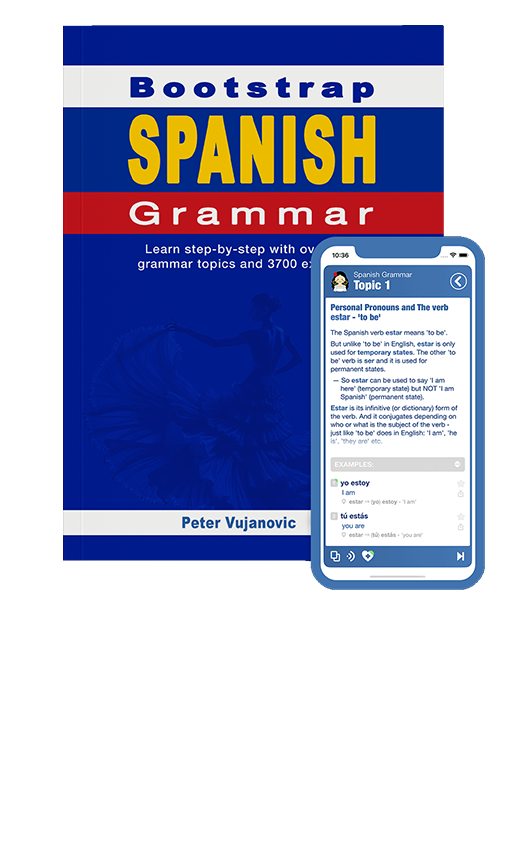Spanish grammar - To come' - the verb venir |
|||
|
|||
The verb venir means 'to come'. It is an irregular verb and is commonly used to indicate movement from a place. Its conjugations in the present tense are as follows: • yo vengo - I come • tú vienes - you (informal, singular) come • él, ella, usted viene - he - she - you (formal, singular) come(s) • nosotros, nosotras venimos - we come • vosotros, vosotras venís - you (informal, masculine, plural), you (informal, feminine, plural) come • ellos, ellas, ustedes vienen - they (masculine, plural), they (feminine, plural) - you (formal, plural) come |
| Examples: | |
|
yo vengo
I come
|
|
|
tú vienes
you (informal) come
|
|
|
él viene
he comes
|
|
|
ella viene
she comes
|
|
|
usted viene
you (formal) come
|
|
|
nosotros venimos
we come
|
|
|
nosotras venimos
we (feminine) come
|
|
|
vosotros venís
you (informal, masculine, plural) come
|
|
|
vosotras venís
you (informal, feminine, plural) come
|
|
|
ellos vienen
they (masculine) come
|
|
|
ellas vienen
they (feminine) come
|
|
|
ustedes vienen
you (formal, plural) come
|
|
|
Ella viene a casa tarde.
She comes home late.
|
|
|
Ellos vienen a la reunión.
They (masculine) come to the meeting.
|
|
|
¿Vienes tú a la fiesta?
Are you (informal) coming to the party?
|
|
|
¿Quién viene con el maestro?
Who is coming with the teacher? |
|
|
Ellos vienen sin el maestro.
They (masculine) are coming without the teacher.
|
|
|
¿Cuándo viene ella a casa?
When does she come home?
|
|
|
¿Ella viene ahora?
Is she coming now?
|
|
 |
|




